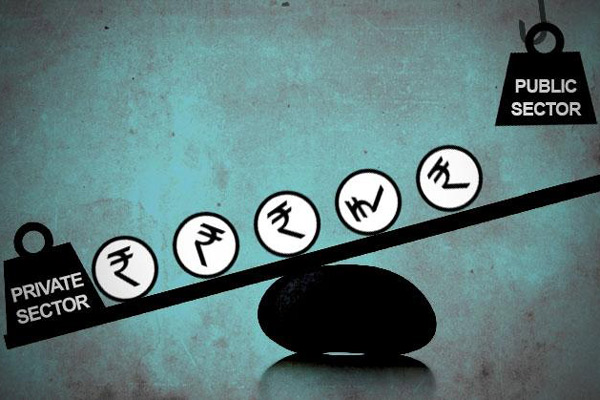This article has been written by Golock Chandra Sahoo pursuing Personal Branding Program for Corporate Leaders and has been edited by Shashwat Kaushik.
This article has been published by Sneha Mahawar.
Table of Contents
Introduction
I am writing this from my real experiences of working in different sectors in different capacities. My initial appointment was with the state government for some months, and after that, I switched over to the Government of India. I retired on superannuation in 2015. Then I again had an assignment with the state government as a consultant for more than one and a half years, and after that I worked with a government of India autonomous organisation, and finally I came to purely private sector entities. This paper projects differences in the work cultures of various organisations analysed from different perspectives.
By government entity, we mean an authority, a board, or any other body, including a society, trust, or corporation set up by an act of the Central or state legislature. The regulatory entity is a slightly different entity that includes any board, commission, agency, division, or other unit/sub or subunit of state government regulating one or more professions, occupations, industries, businesses, or other endeavours operating in the state. But private entity means any natural person, corporation, general partnership, limited liability company, limited partnership, joint venture, or business trust operating in profit or non-profit mode. Keeping all these definitions in view, one may think of the pattern of functioning of various entities. Government functions for the people, by the people, and of the people, and so the functioning is all for the welfare measures of the countrymen, where no other motive is there. But privately managed entities function differently, with a specific purpose and motive. These differences can be selectively described as follows.
Working with laws, rules and regulations
Government units, offices/departments and government undertaking entities function with a set of laws, rules, and regulations devised for the purpose by the government under various acts, rules, or executive instructions. This being the case, the functioning of such units is very systematic and uniform throughout the state or country. But seldom has any private organisation made a set of rules for its management. The people in charge of such entities adopt different accounting practises and different ways of administration suitable to them, so very rarely can one see the commonality in managing such units. This is perhaps the major difference between the two.
Fixed position with accompanying hierarchy
Government departments function on a well-defined hierarchical up-gradation. One may have an opportunity if she/he continues in the assigned activities with some years of recorded experience that allows for a rise in the ladder. Here, ability and expertise are not the basic criteria to determine one’s eligibility to differentiate and upgrade the position. Entry made in the Annual Performance Appraisal Report (APAR), be it right or wrong on the writing of the Reporting officer or next reviewing authority, is taken to decide eligibility by the Departmental Promotion Committee (DPC). It sounds embarrassing insofar as reliance is placed on the entry made in the APAR by the DPC. But this is never an issue with private organisations. The ability to work with expertise is perhaps the only benchmark on which one is positioned or upgraded. Other than a family based business or a one-person company, expertise in terms of performance attracts up-gradation everywhere in terms of remuneration or position. No APAR approach is there. It can be confessed here that APAR is a means of manipulation, though not in 100 percent of cases under the government, where ratings are given not just on expertise or seniority but something off the record that is called flattery. Many flatterers get the opportunity to be upgraded more easily than their counterparts, even crossing many of their seniors in the line due to the best-recorded entry in their APAR. These promotions are popularly recorded as out-turn promotions.
Another bottleneck under the government is upgrading the communities not on the basis of merit or seniority but on the basis of reservation. The reservation policy works at the time of recruitment and equally at each stage of promotion. As a result, in most cases, people much lower in seniority and merit are there to control the most brilliant personalities belonging to the general class after being promoted. This ultimately demotivates many in the service, while the standard of work gradually deteriorates with an in-experienced hand in a higher role. Most failures to administer under government in the right perspective are attributable to this cause. The government is aware, yet it can’t take any action due to the constitutional remedies available for the reserved categories. In my case, with a lot of expertise and seniority, I had to work under a person who was fifteen years younger than me and who was even trained by me while he was recruited for a junior clerical position in my department. The pain I have felt then is shared by many, and this condition is persisting even now in the face of the verdict of the Hon’ble Apex Court, where it was directed that reservation amenities should be there once with the initial recruitment and not with each stage of promotion in the hierarchy.
Under private management, this type of differentiation never works. Designation never has any implication so far as employment under private management is concerned. A man with even no designation can have a sumptuous earning only if she/he is capable of working to the satisfaction of management. Management recruits only those people who are capable of being multitask masters and managing more assignments than the assignment for which their recruitment is made. Out-turn is very much there in private management to be recorded to decide incentives or remuneration. But in government entities, no one is bothered by the outturn. Salary is secured there like anything else. But private management has every right to act against the remuneration interests of its employees if out-turn is not up to par. Hire and fire is the real mantra with private agencies. But under government-managed bodies or institutions, the mantra is hire and care. None can be dismissed from their job so easily, and the government cares for all in a regular role. The government has schemes of assured career progression on the basis of which one can be upgraded with pay revision (but not with position) three times in the life span of employment after 10, 20, and 30 years of service.
Job satisfaction and job delight
These are two phases of experienced personnel. Job satisfaction is a positive stage, whereas job delight is negative. When a person gets experience due to his long stay in a fixed position and assignment, he gets job satisfaction, and as he becomes competent to clear all assigned functions in a short time, that phase of employment converts to the job delight phase. That means in this phase, the initial time consumption for doing the assigned task gets reduced substantially. Thus, a time comes due for delight when that employee clears all his/her assigned tasks in a short time and the balance of time in the office is utilised for gossiping. This position affects all other employees working nearby. Therefore, it is essentially required that all such personnel in the job delight phase be rotated for some different assignments or be allotted with some change in assignment. This is the principle of HR management. But seldom can one find any such rotation, job change, or additional assignment in government offices. People can rot in a particular position with a particular task for years.
Under private management, more care is taken to see that a person is allotted work in the area in which s/he is comfortable. Yet, no fixed assignment is there for all time. One person can be assigned work of any kind without any differentiation. So here one is to be the master of all assignments for a safe continuation there. Recruitment here is not a traditional step under the government. The annual exercise is there for all sorts of recruitment under government, starting from notification to search machines, short listing to conducting written tests, and finally selecting candidates on the basis of viva, or personal one-on-one face-to-face interviews. The system is no doubt time consuming and cumbersome, and it involves huge costs. Very recently, the Central Government under the Department of Personnel and Training (DOPT) has withdrawn viva voce for some recruitments of Group B and below positions. Yet, to finalise one annual panel to be effective until the time the next list comes is a very tough job. But under private management, everything is done on a selective basis so that the selection of candidates for any position is not unduly delayed.
Corporate Social Responsibility of businesses
This is perfectly applicable to private entities or public sector undertakings where such entities earmark a portion of their declared profit annually for social development. This action directly or indirectly aids the institutions in growing in some other direction, bringing about a change in the status of the people in the nearby vicinities. But seldom in any government department may one notice such a type of assignment of funds. Management of women employees in the workplace is gradually gaining momentum with the entry of a large number of women into the work arena in private and public sector units. So some organisations are assisting the women employees by opening crèche facilities inside the office building or nearby so that newborn baby care can be taken there, facilitating women employees to manage their work hassle free. The development of roads, markets, housing sites, parks, and malls, including the opening of crèches, are the items covered under corporate social responsibility, and it is now perceived that this is perhaps the greatest action to develop the economic well-being of the people working there as well as the neighbourhood of nearby localities.
Work culture
So far as the work culture is concerned, it is really different in all the organisations. We may take one case for purchase. All government purchases are guided by different provisions of the General Financial Rules (GFR). For making a purchase exceeding a specified amount under GFR, calling for a quotation is a must. This should be preceded by indenting with due recorded justification. Of the quotations obtained by different sources, a rate comparison is made, and the lowest quoting firm gets the purchase order. Again, after procurement, the quality of the material is tested before the firm is finally paid. So under government departments or public sector undertakings, this is the accepted procedure. But in the case of private entities, such time taking and lengthy steps are never resorted to, and any procurement can be made directly just by having some market survey or market information. So work performed by five people in government offices can be managed by one person in private management. Even rate consideration is there in almost all cases to procure without payment of GST. Suppliers prefer private entities to evade the tax liability due to them. This is certainly a bad practise. People in management have a great say in the matter. Under the government, such a type of transaction is rare.
Here I would like to add that, presently, I am working as an internal auditor in an autonomous private college, where no specific rule is there to be observed so far as procurement is concerned. Management trusts them, perhaps unknowingly, because they favourably loot the entity’s funds. Even then, the auditor working internally has no say, and every such case is internal to the internal auditor. This is a case in reality where I simply rely on the recommendation of the management in most of the cases to give clearance for payment without any examination of admissibility, as was or is being done at the government level. Though I know that internal audits are a great quality management tool for evaluating and improving business-critical processes and can tell the top management what is working well, what is broken, and what is about to break, I feel that I am not being given the due management recognition to opine freely. This is perhaps the greatest loophole in private management, where they retain internal auditors for record sake but function at their whims.
Another issue is that in government departments for effecting any transaction, more people are generally there in comparison with private entities. On government records, an attempt is made to maintain the economy for efficiency and effectiveness while positioning more people for smaller tasks. In private entities, one man does everything as a person of prudence. So perhaps the economy is there in an established manner. Therefore, I feel that economy, efficiency, and effectiveness in transactions are more available at the level of private entities. Government people attempt to set papers in the right position, under the cover of which they make rampant corruption without any check, but corruption under private management is the least in comparison.
Performance ethics
More ethics are needed to run a government establishment. I remember an issue from my time working in a government department. I received a complaint from some people that one of my sub-ordinate staff members is regularly visualising pornography on the office computer during office hours. I did not put that complaint in the right perspective. Yet, after some time, I thought of checking the actual scenario. I rushed to the spot and found that he was busy enjoying the porn show. Mentally, I was too hurt and called for an explanation from that gentleman. I made an adverse entry in his APAR. The entry made there could block him from being promoted for the next two years, and he was only upgraded upon my exonerating him from my remark recorded in APAR stating that his conduct has changed in all these two years. That was a very bad experience. But yet, I feel that laws under the government can take care of all good or bad action inside and while carrying out the official responsibilities. No such regulations exist for privately managed entities, where they can resort to firing an employee when the purpose of retaining them is not met.
Conclusion
Thus, it may be said that there are a lot of differences between private, public, and government entities as far as their functioning is concerned. All such units function in their own way. Targets are there for all, but the accomplishment of the target is only observed by private entities. In government, since punishment is minimal, targets are only on record. Yet action centres are more associated with private entities than the government.
Students of Lawsikho courses regularly produce writing assignments and work on practical exercises as a part of their coursework and develop themselves in real-life practical skills.
LawSikho has created a telegram group for exchanging legal knowledge, referrals, and various opportunities. You can click on this link and join:
Follow us on Instagram and subscribe to our YouTube channel for more amazing legal content.
 Serato DJ Crack 2025Serato DJ PRO Crack
Serato DJ Crack 2025Serato DJ PRO Crack












 Allow notifications
Allow notifications


